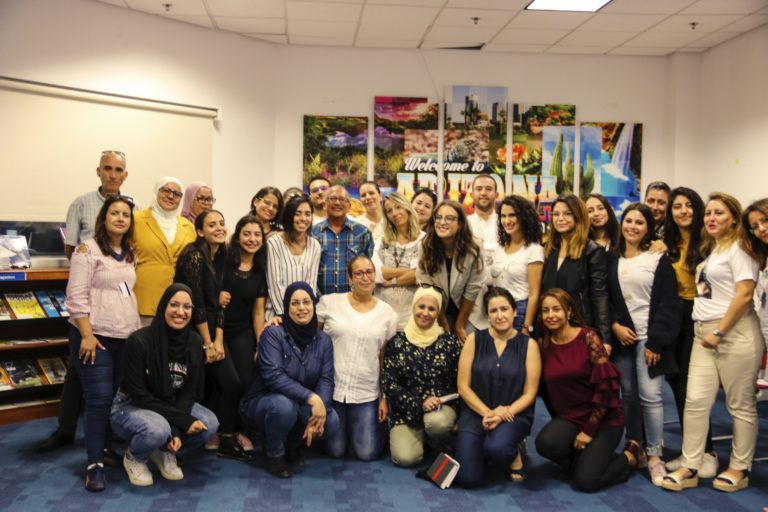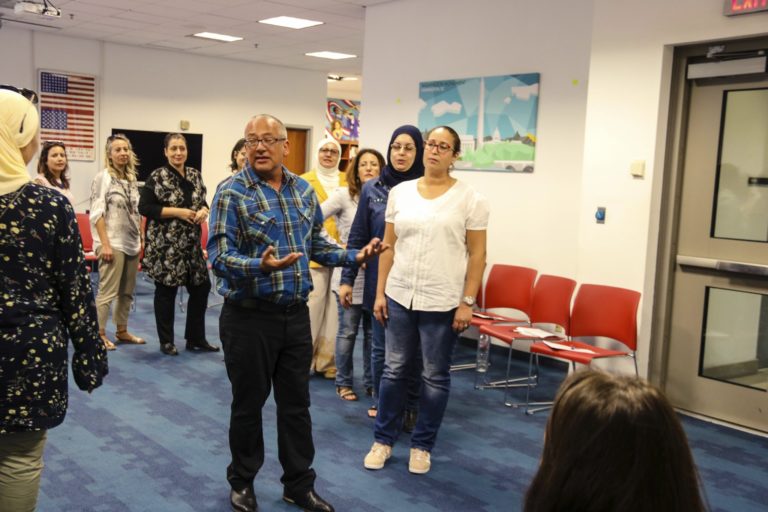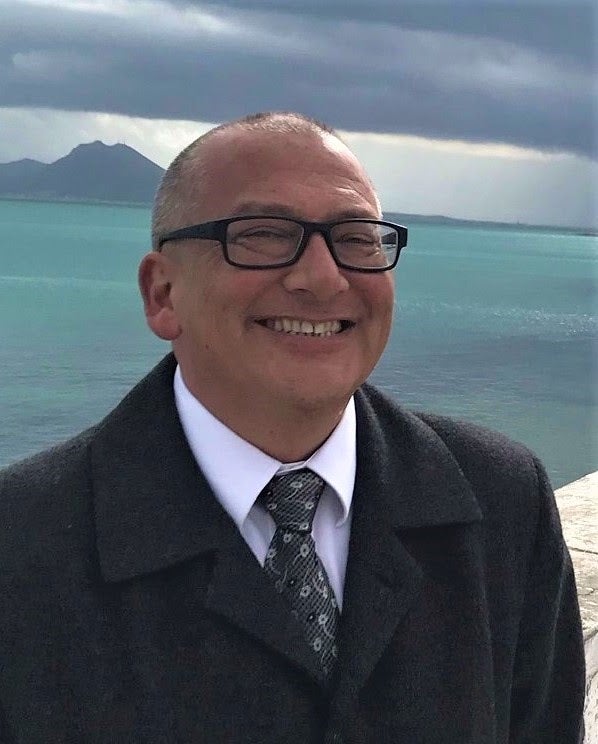“I understand the challenges and joys of being a public school teacher and share deep solidarity with them.”
Dr. Spencer Salas has strong ties to public education. From 1991 to 2001, he taught English as a Second Language in a public high school in Washington, D.C., and in his current position as professor at the University of North Carolina’s Cato College of Education in Charlotte, he prepares future K-12 teachers to take their place in the public education system and leads the doctoral program in curriculum and instruction. Salas credits both his former front-line tenure in D.C. schools and his present work at a large public college of education with shaping his awareness of the needs of public school educators both in the United States and abroad. “I understand the challenges and joys of being a public school teacher and share deep solidarity with them,” he says. Indeed, that commitment to the value of public education informs all his English Language Specialist assignments, no matter the project focus. Yet, one series of assignments in Tunisia stands out for him as a model of how public education can evolve and thrive. “It’s easy to become jaded as an educator, to develop education reform fatigue,” he says. “But with my work in Tunisia, the opposite happened — I left there with renewed energy for what is possible.”

In February 2019, Salas went to Tunisia where his tasks were to deliver a plenary speech at TESOL Tunisia and then, at the request of the Ministry of Education, meet for several days with the Ministry-appointed curriculum development team that was leading the reform to introduce English language instruction in the 4th grade. Prior to this, English language instruction began in secondary school. For Salas, presenting a speech at an overseas TESOL conference was always gratifying but not unusual. However, meeting with a country’s education ministry to develop a new national English language curriculum was a first. In addition, this curriculum was to be adopted within the year by every public elementary school in the country. While Tunisia — an Arab Spring success story — was “so proud of the democracy it had become,” says Salas, the maturing government also recognized that to become a global contender economically, it had to build a competitive workforce and toward that end, English had to enter the curriculum at an earlier age. “This was an important part of its long-term strategy for economic development,” Salas notes.
To help with that process, Salas was prepared to deliver a clear-cut course of action to the Ministry. Instead, the assembled curriculum team wanted him simply to observe, listen to their proposed curricular framework, and provide guidance. “My role was to be an external set of ears and think aloud with this dynamic group of education leaders,” he recalls. Soon after those brainstorming sessions, Salas delivered a one-page needs analysis to the Ministry, making sure his recommendations built off the content already developed. “My goal was not to be too corrective,” says Salas. “The team had such enthusiasm knowing they were creating something for future generations — I wanted to make sure they maintained that sense of ownership.”
“[Participants] were so eager to be part of this creative process that would result in education reform.”
Since most of the 4th grade teachers likely would not be trained in English language instruction, Salas surmised “they would need a lot of scaffolded support.” As a result, he recommended the development of a detailed teacher’s manual that would include loosely scripted lesson plans, activities, assessments, and more. In addition, he suggested both teacher manuals and student books be distributed electronically. “That way, the Ministry could revise and refine the program as it received feedback from various stakeholders,” he says. “A paperless format has a flexibility that a published textbook does not.”

Impressed by his insights and thoughtful guidance, the Ministry asked Salas to return that summer to review the team’s progress and offer further counsel. When he arrived that July, he was excited to be met not only by the original team but by an additional group of 50 pedagogical advisors, all teachers selected by the Ministry from the country’s provinces to participate in the curriculum development and launch. “To be sustainable, educational reform needs to be a dialogue between policymakers and practitioners,” he says. “A top-down approach doesn’t work — there needs to be teacher buy-in.” For this assignment, Salas presented professional development workshops on the broader themes of literacy development and primary grades pedagogy, as well as on narrower topics such as student-centered activities. Despite the long workshop days and new content, the enthusiasm Salas had witnessed earlier that year was even more palpable with the new group of educators added to the mix. “They were so eager to be part of this creative process that would result in education reform,” he says.
Salas returned to Tunisia in October for one final project collaboration — production of the curriculum materials. During that assignment, he and the pedagogical advisors constructed a tightly scripted curriculum. They also broke it down into units, finalized classroom activities, developed reproducibles, and recorded audio. “The 4th grade teachers would not have to plan anything — it would all be ready for them,” says Salas. Finally, the advisors were divided into teams that “taught” the modules to one another, modifying materials as needed. When Salas left Tunisia this time, in place was a finalized curriculum, which the Ministry had up and running two months later. “I’ve never seen something move that fast.” recalls Salas. “That’s what happens when a group of passionate, committed educators get together to change the future of education in a country.”

Spencer Salas, Ph.D., is Professor in the Department of Middle, Secondary, and K-12 Education at The University of North Carolina at Charlotte where he leads the Ph.D. in Curriculum and Instruction Urban Literacies/TESL sub-concentration. Among the courses he teaches are Globalization and Teacher Leadership. An award-winning District of Columbia Public School ESL teacher (1994-2001), he has been a Fulbright Fellow to Romania (1998), Guatemala (2007), and South Africa (2013); a U.S. Department of State Senior English Language Fellow to Peru (2001-2003); and, a frequent DOS English Language Specialist (2003-present). The ensemble of his scholarship focuses on the New Latino South and has been featured in venues such as Review of Higher Education, Bilingual Research Journal, Urban Review, and The Journal of Basic Writing. He is co-editor of Vygotsky in 21st century society (Peter Lang, 2011); U.S. Latinos and education policy (Routledge/Taylor & Francis, 2014); Education in the New Latino South (SUNY Press, 2017); and The TESOL Encyclopedia of English Language Teaching, First Edition (2018).
